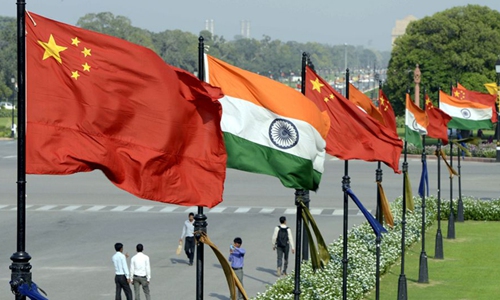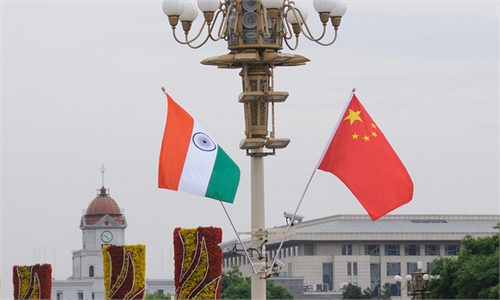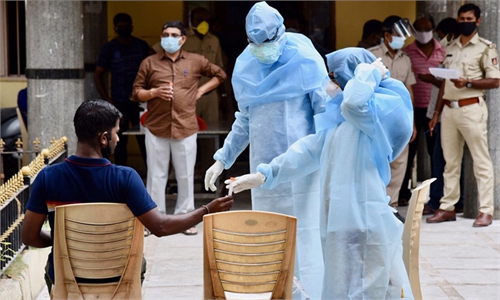Indian nationalists should stop using ‘boycott Chinese products’ to please themselves: Global Times editorial

Photo: Xinhua
After a serious skirmish between Chinese and Indian troops along the border, the Indian public has been clamoring for nationalism. "Boycott Chinese products" is the most prominent slogan. Indian cricketer Harbhajan Singh tweeted on Tuesday, calling people to "ban all Chinese products." Retired Indian army major Ranjit Singh told people to throw Chinese goods out, saying "we can break China's backbone economically."
India is reportedly planning to impose higher trade barriers and increase import duties on about 300 products from China and elsewhere, and to use Indian products to replace Chinese equipment in the country's 4G network upgrade. These may be India's long-term plans, but some media have used these plans to hype Indian society's anti-China sentiment.
India was unjustified in the border dispute. Indian troops violated the China-India consensus of stabilizing the Galwan Valley region reached during the two militaries' commander-level talks. They blatantly crossed the Line of Actual Control (LAC) and forcibly demolished the Chinese troops' tents. This led to the encounter, and India suffered many casualties.
Indian officials have been generally low-key after the incident. China and India have always had different understandings of the LAC, but to control the situation on the border, neither country should act first. Indian troops broke the deal. Then, 17 Indian troops died because they were exposed to freezing temperatures in the high altitude after being injured. Based on these facts, India lacks the moral basis to carry out an anti-China mobilization.
India's extreme nationalist forces are using the cheapest slogan "boycott Chinese products" to vent their sentiment.
In fact, India's radical forces have been calling for a boycott of Chinese products every year, but China-India trade has been expanding. India is importing more and more goods from China, leading to India's tens of billions of trade deficit with China each year. This is because many Chinese products cannot be produced in India, and India cannot buy these products from the West at the same price. For example, many Indians who blame China are using Chinese mobile phones. Chinese lamps, ceramics and suitcases are the most suitable for Indian consumers. With low prices and good quality, these products are difficult to replace.
China's GDP is about five times that of India's. With such a gap, how could it be easy for a smaller economy to sanction a large one? India cannot replicate the US' overbearing approach to China. India will suffer more losses if it launches a trade war against China, and the Indian people's livelihood, which has been supported by Chinese products, will bear the brunt.
China and India are both super-scale developing countries. Strengthening economies and improving people's living standards are the central tasks of these two countries. China and India have a huge space for cooperation which greatly benefits the two countries and peoples. It is understandable that India adjusts policies for economic reasons. But if India ruins bilateral cooperation just to please the nationalist sentiment on the border issue, then it will be hurting itself.
China has not forced India, nor has China used India's difficulties to gain a political advantage. India's current COVID-19 epidemic situation is grim and the country is economically fragile. Hopefully, Indians can remain rational, instead of inciting grief without restraint, adding destructive pressure on the peaceful control of China-Indian border disputes, or making it harder to stabilize the situation in the Galwan Valley region.
Some Indian political forces and public opinion should stop inciting their troops to take provocative action along the border. Please tell the Indian soldiers that a peaceful LAC is where India's real interests lie. In addition to being brave, soldiers should also be politically clear-headed and have a broad vision.



